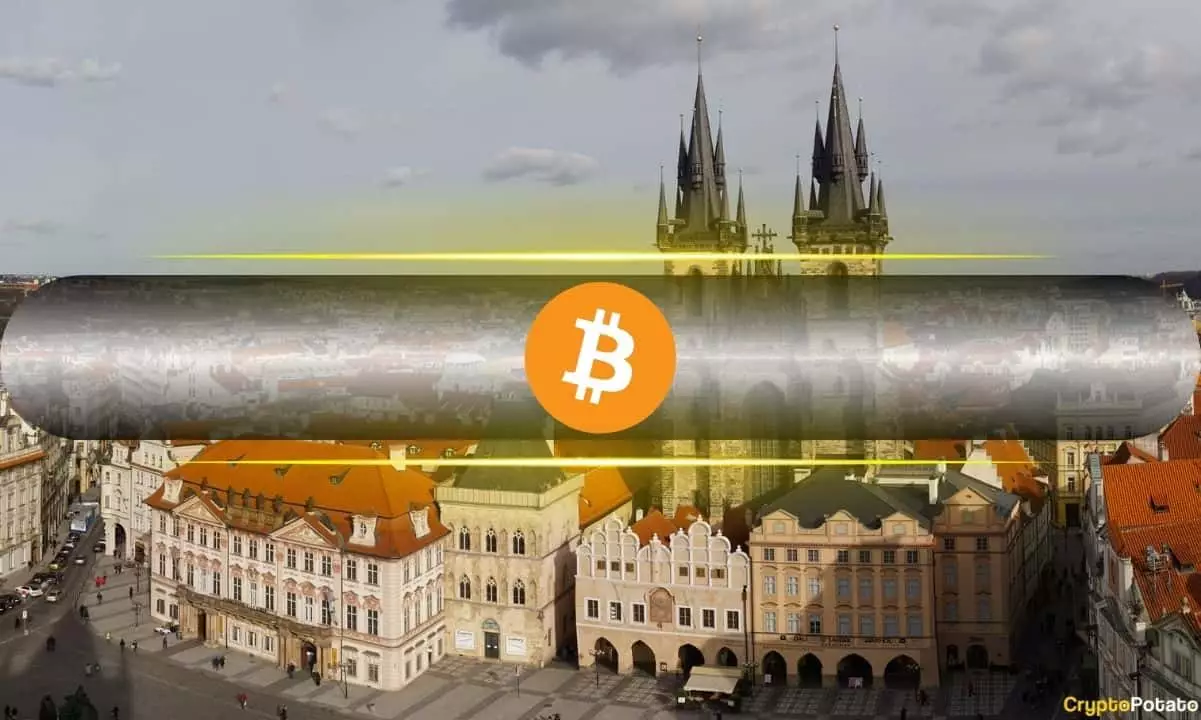In recent months, Bitcoin has transitioned from the fringes of financial discourse to a topic of serious consideration among governments and central banks worldwide. Countries like the United States, Switzerland, and the Czech Republic are beginning to reevaluate traditional reserve assets in favor of incorporating Bitcoin as a more modern, digital alternative. The Czech National Bank (ČNB), under the leadership of Governor Aleš Michl, has sparked interest by suggesting the potential acquisition of Bitcoin as part of a strategy to diversify the nation’s foreign exchange reserves. This move indicates a notable shift in perception toward cryptocurrencies, demonstrating a willingness to adapt to the evolving financial landscape.
During a recent interview, Michl expressed the idea of purchasing “a few Bitcoin” to enhance the ČNB’s reserves. Although he emphasized that such an investment would be minor and would require the consensus of the bank’s seven-member board, the mere proposal signifies a critical pivot in state-level financial planning. The recognition of Bitcoin’s role as a savings tool opens up discussions about the balance sheets of national banks and their approach to managing assets in an increasingly volatile global economy.
The narrative around Bitcoin has experienced a substantial transformation, particularly following Donald Trump’s electoral victory in November 2024. Previously dismissive of cryptocurrencies, Trump has now reconsidered his stance, promoting Bitcoin as a strategic asset capable of restoring economic stability. His proposed establishment of a U.S. Bitcoin reserve reflects a growing acceptance among influential political figures about the potential of cryptocurrencies to serve as protective measures against inflation and the depreciating dollar. With proponents like Senator Cynthia Lummis championing this initiative, Bitcoin is gaining traction as a legitimate store of value.
Beyond the Czech Republic and the United States, other nations are exploring similar paths. Switzerland’s consideration of Bitcoin as a complement to gold in its reserves exemplifies a proactive approach toward financial modernization. A referendum could potentially position Switzerland as the first country to formally recognize Bitcoin as an official reserve asset, enhancing its status as a hub for financial innovation.
In Germany, figures such as former Finance Minister Christian Lindner have suggested that adopting Bitcoin might lessen reliance on the U.S. dollar, advocating for its inclusion by the European Central Bank or the Bundesbank. Hong Kong, too, is showing interest in this trend, with legislator Wu Jiezhuang promoting the idea of integrating Bitcoin into financial reserves to bolster economic resilience.
Meanwhile, Russia stands out for its proactive measures to utilize Bitcoin and other cryptocurrencies in international transactions. This strategy aims to circumvent Western sanctions, thereby minimizing dependence on the dollar. Anton Tkachev, a State Duma deputy from the New People Party, has pushed for the establishment of a strategic Bitcoin reserve, indicating that the Kremlin recognizes the importance of diversifying its financial portfolio in a climate marked by geopolitical tensions.
As discussions around Bitcoin as a reserve asset grow in intensity, it is clear that the cryptocurrency is undergoing a transformation in its role within global finance. Countries that embrace this digital asset may position themselves advantageously as the financial landscape continues to evolve, demonstrating a pivotal shift in how national economies engage with emerging technologies.














